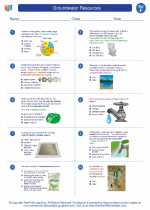Internal Medicine - Explanation
Internal medicine is a medical specialty that focuses on the diagnosis, treatment, and care of adults across a wide range of health issues. Internal medicine physicians, also known as internists, are highly trained to manage complex and chronic conditions, as well as provide preventive care and health maintenance.
Internists are equipped to handle a broad spectrum of illnesses that affect adults, including heart disease, diabetes, respiratory disorders, gastrointestinal issues, and infectious diseases. They are often referred to as the "doctor's doctor" because they are frequently called upon to help diagnose and manage difficult cases and coordinate care among different specialists.
Study Guide for Internal Medicine
1. Understanding the Human Body
- Study the anatomy and physiology of the major organ systems, including the cardiovascular, respiratory, gastrointestinal, and endocrine systems.
- Learn about the normal functioning of these systems and the potential diseases and disorders that can affect them.
2. Disease Pathology and Diagnosis
- Gain knowledge of the mechanisms of common diseases such as hypertension, diabetes, asthma, and arthritis.
- Understand the process of diagnosing these diseases through patient history, physical examinations, and diagnostic tests.
3. Treatment and Management
- Learn about the various treatment options for different medical conditions, including medications, lifestyle modifications, and surgical interventions.
- Understand the principles of disease management and the importance of patient education and counseling.
4. Preventive Medicine
- Study the principles of preventive care, including vaccination schedules, cancer screenings, and lifestyle counseling for risk reduction.
- Understand the role of internists in promoting healthy behaviors and preventing the onset of chronic diseases.
5. Patient Communication and Care Coordination
- Develop effective communication skills for building rapport with patients, obtaining relevant medical histories, and conveying treatment plans.
- Understand the importance of coordinating care with other healthcare providers and specialists to ensure comprehensive and integrated patient management.
◂Science Worksheets and Study Guides Sixth Grade. Groundwater Resources
Study Guide Groundwater Resources
Groundwater Resources  Worksheet/Answer key
Worksheet/Answer key Groundwater Resources
Groundwater Resources  Worksheet/Answer key
Worksheet/Answer key Groundwater Resources
Groundwater Resources  Worksheet/Answer key
Worksheet/Answer key Groundwater Resources
Groundwater Resources  Vocabulary/Answer key
Vocabulary/Answer key Groundwater Resources
Groundwater Resources  Vocabulary/Answer key
Vocabulary/Answer key Groundwater Resources
Groundwater Resources 

 Worksheet/Answer key
Worksheet/Answer key
 Worksheet/Answer key
Worksheet/Answer key
 Worksheet/Answer key
Worksheet/Answer key
 Vocabulary/Answer key
Vocabulary/Answer key
 Vocabulary/Answer key
Vocabulary/Answer key

The resources above cover the following skills:
EARTH AND SPACE SCIENCE
Earth’s Systems
Use research-based evidence to propose a scientific explanation regarding how the distribution of Earth’s resources such as minerals, fossil fuels, and groundwater are the result of ongoing geoscience processes (e.g., past volcanic and hydrothermal activity, burial of organic sediments, active weathering of rock).